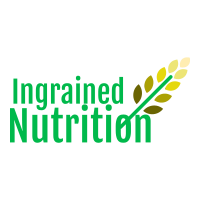Choosing either a lower carb or a low alcohol beer means you will end up consuming less kilo joules which is great if you are keeping an eye on your weight, but which is better? A low carb beer is not low in alcohol in fact they are usually full strength; however a low carb beer is similar in kilojoules to a reduced alcohol beer. For reduced health risk to your liver, blood pressure and for reduced cancer risk, it is better to choose low alcohol beer rather than a low carbohydrate beer. It is good to know that beer is not excessive in carbohydrate to begin with, at approximately 10g of carbohydrate per serve compared to around 40g in a can of soft drink.
Lower carb beers (Lowest to Highest Kilojoules)
| Low Carb Beer | Alcohol Content | kJ per 100ml |
| Iron Jack Crisp Australian Lager | 3.5%, | 106kJ |
| Pure Blonde Ultra Low Carb Lager | 4.2% | 108kJ |
| Skinny Lager | 4.0% | 113kJ |
| XXXX Summer Bright Lager | 4.2 | 120kJ |
| Hahn SuperDry | 4.6 | 126kJ |
| Carlton Dry | 3.5 | 140kJ |
| Steersman Blonde | 4.2 | 150kJ |
Lower Alcohol Beers (Lowest to Highest Kilojoules)
| Lower Alcohol Beer | Alcohol Content | kJ per 100ml |
| Coopers Ultra Light Birrell | 0.5% | 82kJ |
| Çascade Premium Light | 2.6% | 102kJ |
| Hahn Premium Light | 2.4% | 115kJ |
| Cooper’s Premium Light | 2.9% | 125kJ |
Overall you can choose a low carb or a low alcohol beer with a similar reduced kJ content, again the lower alcohol option being the preferred choice for your health.
There are also an abundance of zero alcohol beers on the market from Carlton Zero to Asahi Dry Zero and Henekin Zero Lager for those who like to enjoy the taste of an ice cold beer without the alcohol content.
The National Health and Medical Research Council (NHMRC) have recently updated its alcohol guidelines for Australians from the previous 2 standard drinks per day.
Healthy men and women:
To reduce the risk of harm from alcohol-related disease or injury for healthy men and women, drink no more than 10 standard drinks per week and no more than 4 standard drinks on any one day.
The less you choose to drink, the lower your risk of alcohol-related harm. For some people not drinking at all is the safest option.
Children and young people:
To reduce the risk of injury and other harms to health, children and young people under 18 years of age should not drink alcohol.
Pregnancy and breastfeeding:
To reduce the risk of harm to their unborn child, women who are pregnant or planning a pregnancy should not drink alcohol.
For women who are breastfeeding, not drinking alcohol is safest for their baby.
We encourage you to enjoy the beer you love, but consider trying a lower alcohol version of your favourite. You might be pleasantly surprised!
https://www.nhmrc.gov.au/health-advice/alcohol
By Caitlin Mannion, Accredited Practising Dietitian




